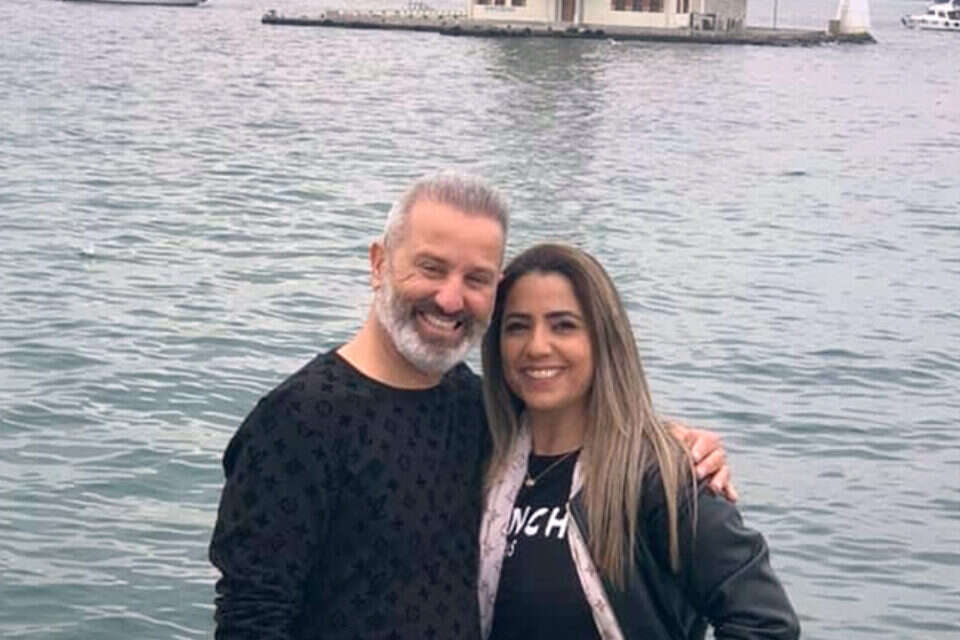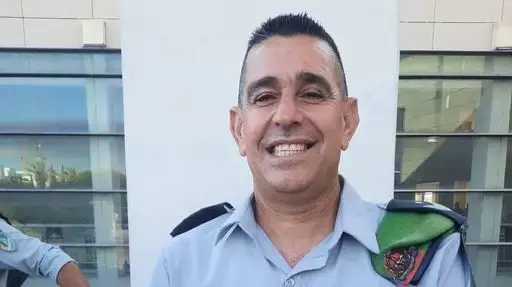This coming Saturday evening, Or Liez in Kislev, will mark exactly 20 years since the double attack in downtown Jerusalem,
during which two suicide bombers blew themselves up by a few seconds with a well-coordinated attack on a pedestrian street next to a group of young people. During the treatment of the wounded, a car bomb exploded at the scene, killing 11 people.
In those days of the terrorist attacks in Jerusalem (2001), in light of the grave fear of being caught in a terrorist incident, the question arose as to the risk of the individual in favor of rescuing the general public, such as rescue forces who were injured more than once on their way to rescue victims.
The opposite question arose with the arrest of the perpetrator, a senior Hamas operative, Ibrahim Hamed, who was the commander of the Izz ad-Din al-Qassam Brigades in Judea and Samaria during the second intifada.
Hamed was sentenced to 54 life sentences after lengthy and complex hearings in the tribunal, which held him directly responsible for the murders of 46 Israelis, injuring more than 400 and planning a significant portion of the deadly attacks Israel knew at the time.
With his imprisonment, the question of saving the individual by risking the public arose, when in the Shalit deal, Hamad's name came up as a potential for liberation.
This would probably have happened, had it not been for the veto imposed by the GSS chief and the chief of staff and their firm refusal to include him in the list of those released in the deal due to his position, his status as head of Hamas' military wing in the West Bank and the risk of his release.
Gilad Shalit after his release, Photo: Avi Ohayon - GPO
There is no doubt that the ethical and value dilemmas in the Shalit deal were complex, when it is clear that every minute that the abductee does not return home, his life is on the other side, and on the other hand the release of terrorists is a significant danger to the whole.
Indeed, many of those released from the deal returned fairly quickly to engage in terrorism and even murdered more Jews.
Bargaining chip
This week we found ourselves in an equally different and complex dilemma, when an Israeli couple was arrested in Turkey after photographing Erdogan's palace.
In this case their lives are not in danger at this point, but they seem to have been stopped to be a bargaining chip in the diplomatic / political arena.
The Jewish people have learned experience of using it as a bargaining chip for various issues.
It is possible that the compassionate hearts of our people who did everything for the release of their brothers were at the heart of the matter, or simply the sage's definition that Halacha is that Esau hates Jacob. In Israel there was a fund for the redemption of prisoners, but there were also private initiatives.The importance of the issue is so great that Jewish law instructs to sell the building materials purchased from a donation for the construction of a synagogue and transfer the money to the redemption of prisoners.
When it comes to people who have been captured because their captives wanted to exterminate the nation, it seems that the Torah would prefer a bitter war to the release of the hostages and captives even at the cost of risking their lives.
This was the case in "Operation Jonathan" to release the hostages in Entebbe, this was the case in the operation to release the late Nachshon Waxman who was abducted by a terrorist cell and killed in a failed liberation operation, and this was the case in many other incidents.
The Babylonian Talmud tells of my mother's rabbi who was imprisoned in Safsufa.
His friend had already mourned for him, while Rish Lakish, one of the greatest Amoraim in the Land of Israel, risked himself, went to free him and succeeded.
But despite all this, it seems that every prisoner has a reasonable price tag that can be negotiated, and as soon as the captors seek to expropriate the proceeds for the prisoner, the negotiations must be stopped and contact cut off, in order to avoid encouraging kidnappings for profit. "Pudin is the over-captive in order to imitate the world's correction," and the Shulchan Aruch explains that the point is not to reward and arouse the appetites of the captives.
Natalie and the Oknin rebels, Photo: Courtesy of the family
How high is the price?
The Maharam of Rothenburg, one of the greatest arbitrators, was the leader of the Jewish community in Ashkenaz about eight hundred years ago. Heavy and unique, the Maharam decided in 1286 to flee with many Jews to Italy.
He was captured on his escape, returned to Germany and imprisoned by the authorities in a prison in the city of Enschheim in Alsace, after realizing that the important rabbi would be released at any cost, and was charged an astronomical sum for his release.
The Jewish community worked hard to obtain the full amount, but Rabbi of Rothenburg refused to release it in this way, as the surrender of the Jews to the demands of the royal house would encourage such behavior in the future.
The Maharam died several years later in the tower where he was imprisoned, and was brought for burial only after many years.
Negotiations for the release of the Israelis in Turkey are currently underway in order not to harm the mediation and treatment efforts, but it seems that the danger of increasing appetite for the creation of bargaining cards does exist.
It would appear that any process that would involve surrendering and aiding terrorism directly or indirectly in exchange for the release of the spouses would be inappropriate, and would constitute a potential future risk to the country’s population.
Rabbi Shraga Natan Dahan is an officer in the Res. He has a master's degree in technology and is certified as a rabbi and judge. Serves as a consultant and lecturer in public, security, educational and scientific bodies on issues of halakhah, technology, medicine, science and space.








/cloudfront-eu-central-1.images.arcpublishing.com/prisa/LK4BWLOG5F4TALNACDXUI4NVI4.jpg)
